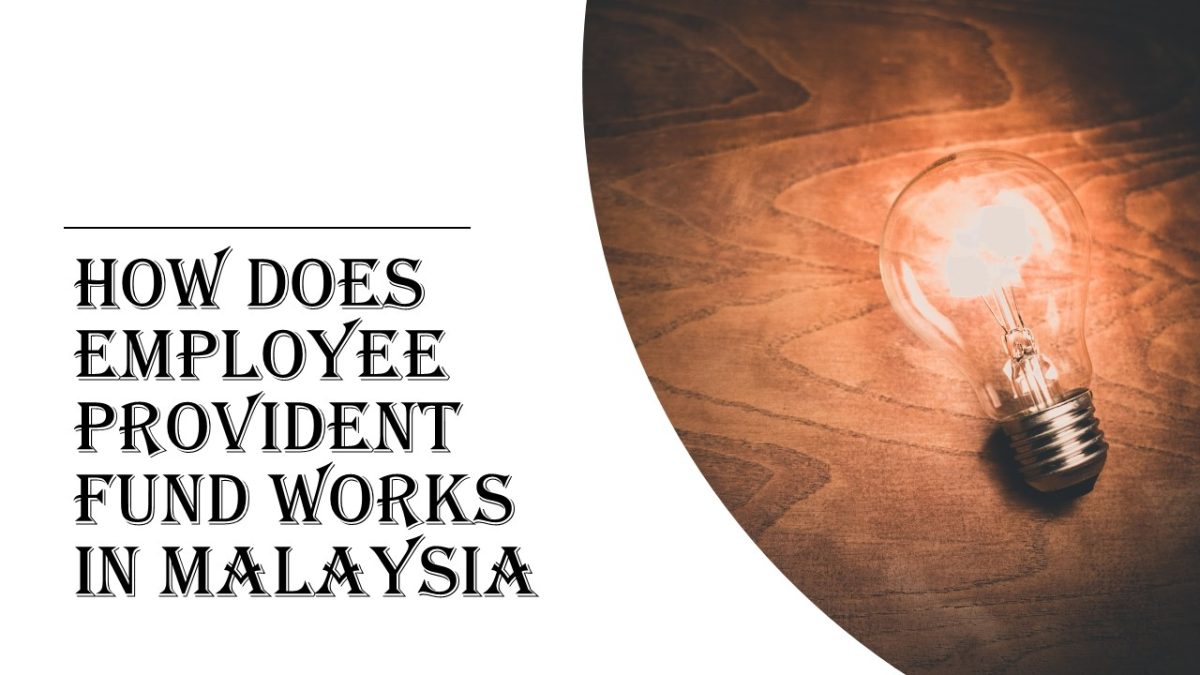The Rates of Employee Provident Fund
Employer needs to pay the employee’s contribution to EPF every month based on rates stipulated in the 3rd schedule of the EPF Act 1991. Rates will be different under different condition and circumstance.
For employee’s wages earned less than RM 5,000
- At least 11% paid by employee
- At least 13% paid by employer
For employee’s wages more than RM 5,000
- At least 11% paid by employee
- At least 12% paid by the employer
If the employee is above retirement age, that is age 60 and above, the contribution of EPF will be reduced by 50%.
- At least 5.5% paid by employee
- At least 6.5% when employee’s salary less than RM 5,000 paid by employer
- At least 6% when employee’s salary more than RM 5,000 paid by employer
Effective January 2019, for employee reached retirement age has the option for not contributing to EPF
- 0% paid by employee
- Fixed rate at 4% paid by employer
In respect of non-resident or expatriate, the employee has the option to contribute to EPF. If employee is willing to contribute to EPF:-
- At least 11% paid by the employee
- RM 5 paid by employer
If the expatriate is leaving Malaysia, the employer is allowed to stop contributing for the last 2 months before the expiry of the expatriate’s work permit.
Types of Wages that are subject to EPF
Wages for the purpose of EPF represents all monetary remuneration which includes salary, bonus, commission and allowance due under his contract of service regardless whether agreed to be paid monthly, weekly, daily or otherwise.
Nonetheless, there are certain remunerations which are not subject to EPF:-
- Service charges
- Overtime payment
- Gratuity
- Retirement benefit
- Retrenchment, lay-off or termination benefits
- Travelling concession allowance
- Payment in lieu of notice of termination;
- Any other remuneration exempted by Minister; or
- Director fee.
If the wage is director salary, such salary will be subject to EPF. Director fee is usually refer to fee which only determined by shareholders at the annual general meeting of the company, after financial year end closes.
How Does EPF Account Works
The EPF account will be separated into 2 accounts which is account 1 and account 2
Account 1 : 70% of contribution, will go for retirement purpose
Account 2 : 30% of contribution, can be used for various purposes:-
- Reach age 50 and and wish to withdraw partial funds
- Withdrawal to fund own or children’s education
- To purchase a home
- To build a home
- To reduce / redeem housing loan balance
- To pay monthly housing loan instalment
- Purchase a PR1MA house
- To cover medical expenses or to buy healthcare equipment.
Upon reaching age 55, the contributions of Account 1 and Account 2 will be consolidated into one account called Account 55. You can withdraw all or part of the savings from this account at any time.
If you choose to continue working after the age of 55, the further contributions to the EPF you made will be credited in another new account called Akaun Emas, to be withdrawn only upon reaching age 60.
At age 60, both Account 55 and Account Emas will be consolidated for withdrawal. You can make a lump sum or partial withdrawal at any time to fund your retirement.
There is not limitation of age for contribution to EPF.
Information That Required in The Statement of Wages/Payslip
Employer must prepare and furnish statement of wages / payslip to its employees every month which contain such information :-
- Name of employee
- EPF number
- Employee’s gender
- Identification card number / passport for foreigner
- Duration of wage period
- Wages or other remuneration
- Employer’s registration number
- Amount deducted for EPF contribution in respect of employer and employee portion respectively
New Employer
If you are a new employer in Malaysia, you have to register your company with EPF Board within 7 days from the date which you are liable to pay wages which is required to contribute EPF. Meaning to say by that date, you have to ensure all your employees are registered with EPF.
Period for The Contribution of Employee Provident Fund
The employer must make contribution and make payment to EPF by 15th of the following month.
If employer fails to pay EPF by 15th, employer will have to pay the outstanding contribution plus a dividend and interest.
- The dividend rate will based on the particular year’s rate or last dividend declared rate by the EPF Board to the employee.
- The interest rate will be determined by EPF Board for late payment of penalty.
Obligation of Employer to Employee Provident Fund Board When Any Changes Was Made
- If there is any change of company address, the company must notify EPF within 14 days after such change (regulation 9(5) of EPF Rules 1991)
- In the event there is a change in the status or name of the employer, the EPF must be informed within 21 days (regulation 9(4) EPF Rules 1991).
- In the event the company ceases its business or no longer being an employer, the company shall inform the EPF within 30 days form that date. (s.41)(3))
Information that Employer Has to Keep
Under Rule 24(1), EPF Rules 1991, employers are required to maintain a register containing:-
- Full name of employee
- EPF membership number
- Gender
- Date of birth
- IC or passport
- Permanent house address
- Occupation
- Employment commencement date
- Duration of wage period
- Wages and remuneration contribution EPF by both employer and employee.
These records must be retain for at least six (6) years
If you need assistance on our Business Process Outsource Services, please call us at 011-1217 8183.




